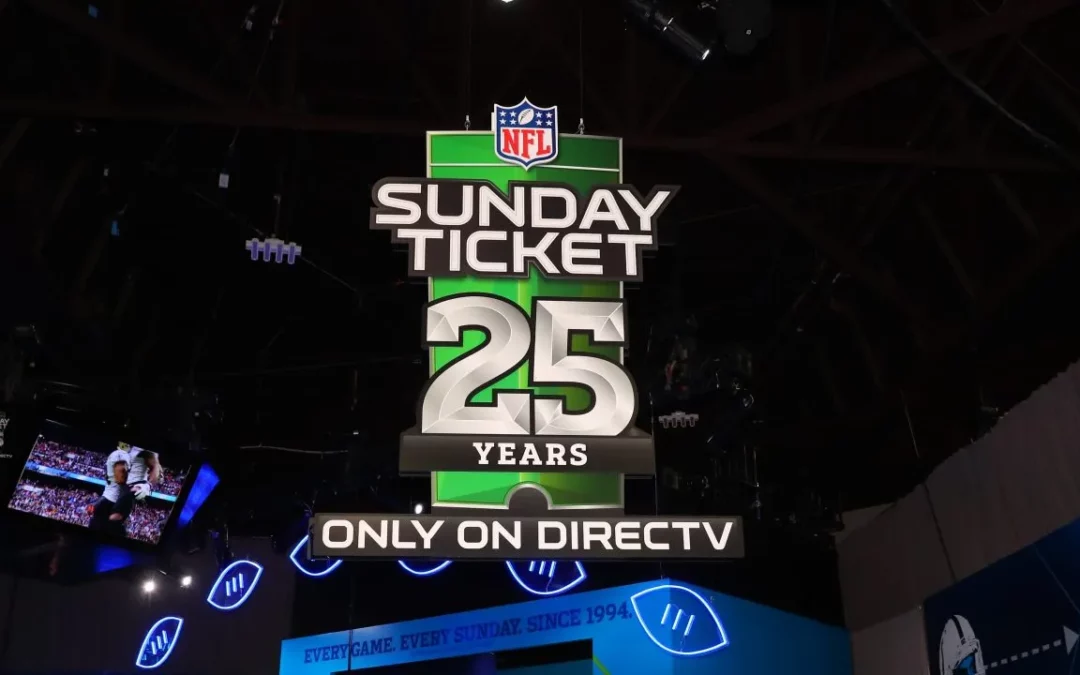Compared to the other four major sports leagues, the NFL takes a very different approach to broadcast rights for its out-of-market football games: fans who wish to see games that aren’t broadcast locally have to buy the Sunday Ticket premium package.
A federal judge ruled on Thursday that the NFL will be subject to a multibillion dollar trial in February to contest the league’s exclusive licensing of those telecasts and the bundling of those rights by its 32 teams. According to U.S. District Judge Philip Gutierrez, there is sufficient evidence to imply that there might be monopoly ownership of out-of-market games as a result of a complex scheme that drove up costs for Sunday Ticket purchasers.
NFL Playoff Game on Peacock Breaks Streaming Record
Allegations that the NFL and its clubs engaged in antitrust law violations in order to secure exclusive deals with broadcast partners for the ability to broadcast games outside of markets are at the heart of the eight-year-old legal dispute. Multiple class action complaints over the matter state that, in the absence of the bundling of those rights, NFL teams would engage in competition with one another in this market, potentially via separate game streams on the internet.
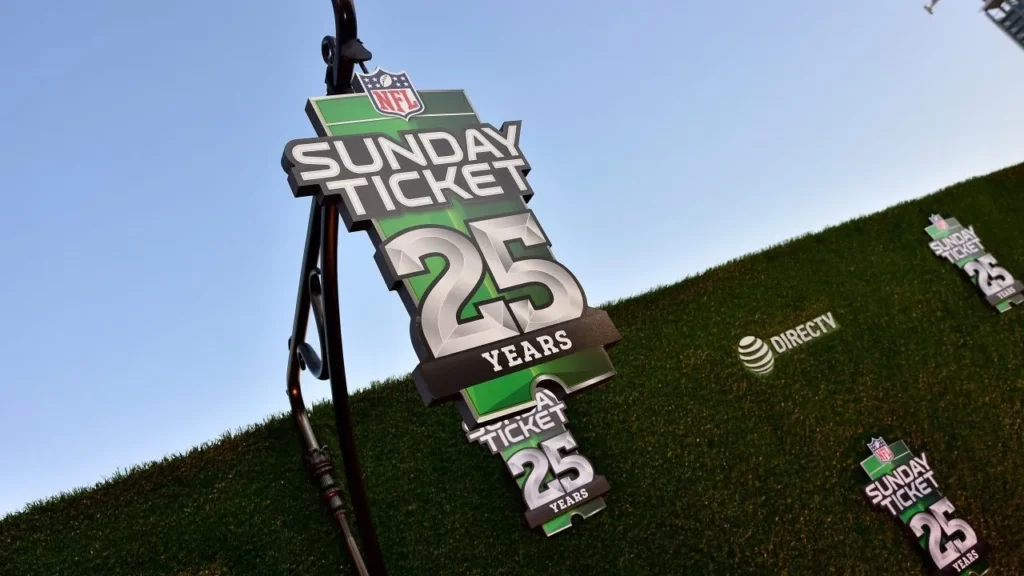
In order to see games outside of their local market, fans are need to purchase Sunday Tickets under the existing system. The NFL and Google’s YouTube came to an agreement in 2022 for the rights, which were formerly owned by DirecTV.
The anticipated damages for the jury trial, which is set to begin on February 22, are $6.1 billion. The class action is asking for an injunction to prevent future antitrust law violations, which might prevent the NFL from providing out-of-market games to any one provider.
READ MORE: Jimmy Kimmel Threatens Aaron Rodgers With Legal Action After NFL Player Links Him To Jeffrey Epstein
The court determined that it is “misleading” for the NFL to claim that its 32 clubs cannot be a part of the alleged conspiracy because they were not parties to its agreement with DirecTV, in its summary judgment ruling against the league. It reasoned that the members clubs “approved the arrangement.”
The order said, “Furthermore, the NFL comes to own the copyrights of the game telecasts produced by CBS and FOX through the NFL-Network Agreements—which the member clubs ratify.” “The NFL has granted DirecTV a license to use those copyrights.”
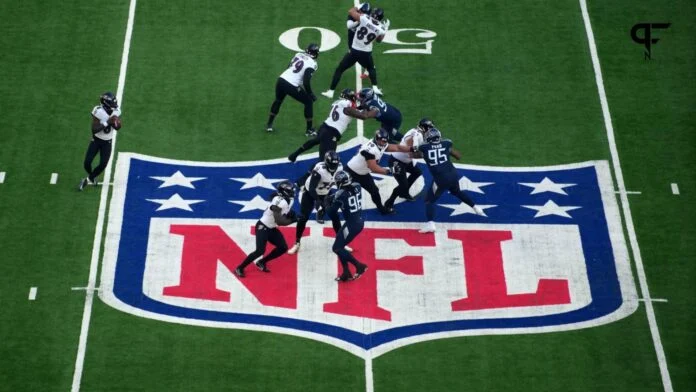
Regarding the ruling, the U.S. 9th Circuit Court of Appeals offered some guidance. Despite the fact that the plaintiffs bought the Sunday Ticket package from DirecTV, the federal appeals court determined upon dismissal that it is reasonable to sue the NFL because the suit “adequately alleges that DirecTV conspired with the NFL and the NFL Teams to limit the production of telecasts to one per game.” It explained that the antitrust injury at issue in the case was created by this claimed multilayer conspiracy to violate antitrust laws.
The order states that several agreements may have led to DirecTV’s monopolistic ownership of out-of-market telecasts in this case. The league’s agreement with CBS and Fox to create a single telecast for every Sunday afternoon NFL game, with the networks in turn being granted the exclusive right to broadcast a limited number of games through free, over-the-air TV in local markets, and an agreement between the NFL and DirecTV enabling the bundling of out-of-market games into the Sunday Ticket subscription package are among them.
According to Gutierrez, these agreements would have been anticompetitive since they might have made it impossible for teams to independently produce game telecasts.

The judge stated, “The member clubs cannot individually compete with either DirecTV—for out-of-market telecasts—or CBS and FOX—for local broadcasts—if the member clubs have agreed not to produce their own telecasts.” “The NFL and its member clubs are prevented from providing their own out-of-market telecasts by provisions in the NFL-Network Agreements.”
No more than two games may be shown simultaneously in any given local market under the terms of the league’s agreement with CBS and Fox. In essence, this gives the networks the only authority to play specific games.
READ MORE: NFL player Chandler Jones Is Engaged In A Confrontation With Cops In Arizona
NFL Chief Media and Business Officer Brian Rolapp’s testimony was unhelpful. He implied that the NFL constructed its agreement with the networks to “reduce competition for the CBS and FOX broadcasts” by stating that Sunday Ticket is meant to be a “complementary premium product” that is “priced and distributed as a premium.” “The NFL and its member clubs can only resell out-of-market telecasts as a premium subscription package, which DirecTV has purchased the right to provide,” the court emphasized.
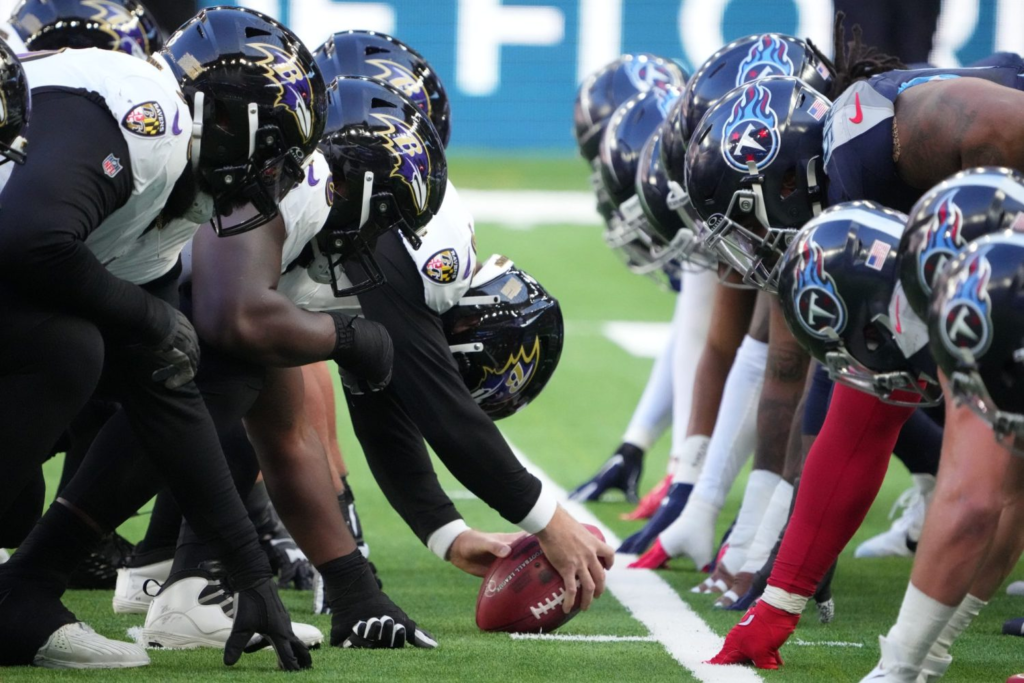
The NFL’s agreement with DirecTV further increased the value of Sunday Ticket by possibly anticompetitive measures, the order stated. Three clauses of the agreement were cited by the court: Limitations on the quantity of national over-the-air broadcasts that can be distributed, along with the requirement to specify a minimum number of games that need to be “regionalized,” made DirecTV the exclusive provider for viewers outside of the market. Additionally, an embargo on telecasts that appear on multiple channels reduced the number of games that are shown locally for free.
Lastly, a rule stating that no more than two over-the-air broadcasts can be shown in any location at once allowed the satellite giant to offer telecasts of every other game in the region except the two that were being provided by CBS or Fox for free.
READ MORE: S&P Warns That Paramount Has Enormous Costs, Including $2 Billion In NFL Rights Coming In 2024
According to Gutierrez, there was enough evidence for a jury to find that the NFL gave DirecTV “exclusive control of out-of-market telecasts.”
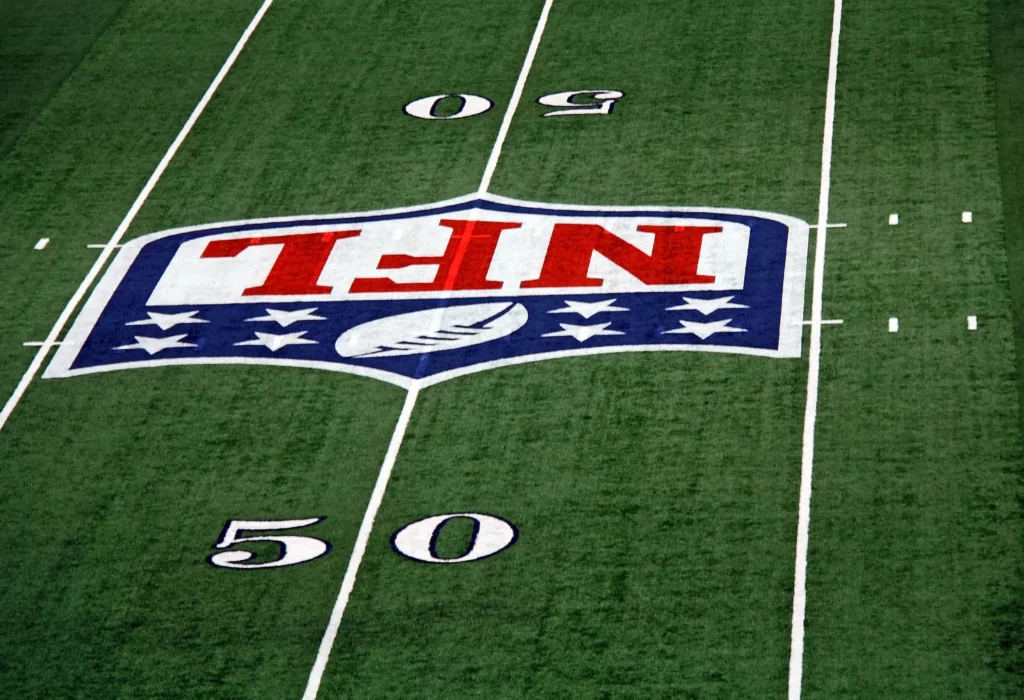
A further point of contention in the lawsuit concerned the NFL’s potential antitrust exemption under the Sports Broadcasting Act, which allows major sports leagues to package broadcast rights for their teams. In response to NFL lobbying, Congress established the law in 1961, realizing that the Sherman Act—an antitrust statute that forbade unjustified trade restrictions—might be violated by such actions.
Because the plaintiffs are not contesting the NFL’s collective sale of telecast rights to free, over-the-air TV networks—a transaction protected by the SBA—but rather its contracts with service providers that charge subscribers a fee, the court sided with the plaintiffs, holding that the exemption does not immunize the NFL. “Defendants imply a broader antitrust exemption than the SBA provides,” the statement read.
“The SBA cannot be read to immunize contracts that restrict competition for paid telecasts,” Gutierrez continued.
The trial by jury is set to begin on February 22. Two classes of residential and business subscribers—including bars and restaurants—who bought Sunday Tickets between 2011 and 2022 were certified by the court last year. Following the case’s appeal to a federal appeals court, which overturned a decision dismissing the case, the order was made. When a statement was requested, the NFL did not immediately react.
Radiant and America Nu, offering to elevate your entertainment game! Movies, TV series, exclusive interviews, music, and more—download now on various devices, including iPhones, Androids, smart TVs, Apple TV, Fire Stick, and more.



